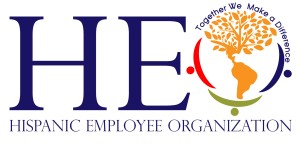History
A Brief History of the U.S. Department of Health and Human Services Hispanic Employee Organization
For the history of the U.S. Department of Health and Human Services, Hispanic Employee Organization (HHS-HEO), it is important to consider the early efforts of Hispanics in the Department of Health, Education and Welfare (HEW) (the precursor Department from which HHS was established in 1978) in forming an employee organization that could be considered as a home-base for Hispanics. In 1972 there existed in HEW a group of employees called the Spanish-Speaking Caucus.
At the time it seemed that most of the Hispanics were in the Public Health Service (PHS), but they welcomed Hispanics throughout the HEW. During the last years of the Nixon Administration and the years of the Ford Administration (which was only 2 years), the Executive Officer of the PHS was Hispanic and was supportive of ventures that had to do with exposing the problems faced by the Hispanic populations that could be addressed by HEW programs.
President Nixon had set up much earlier an organization to address Hispanic issues Executive Branch-wide. It was the Presidential Cabinet Committee for Spanish Speaking Concerns. Although it was a very high level group, it never was able to drill down into the various Executive Branch bureaucracies to affect change. In fact, in the early ‘70s there was a person in a position as Special Assistant for the Spanish Speaking to the Assistant Secretary for Health Affairs. This Special Assistant position disappeared when the person in it left around 1973 or 74.
Late in the Ford Administration attempts were made with the Executive Officer, PHS support to develop an Hispanic Initiative to address with special program emphasis the problems within the Hispanic populations. This effort did not take root due to a number of things, but the lost of the Presidential election was the main reason. A new Carter Administration brought in a new set of decision-makers and the Executive Officer was reassigned.
However, under Secretary Califano, he established another Hispanic Initiative in about 1978 after the HEW was broken up into HHS and a new Department of Education. This Hispanic Initiative was headed by the Assistant Secretary for Human Development, a Hispanic woman. There were a number of Hispanic appointees who helped work on this Initiative with several career Hispanic employees.
Within this environment, there was some discussions going on among Hispanic employees about establishing an employee organization Department-wide. To this point in time the Spanish Speaking Caucus of the PHS had changed its name to the Spanish Heritage Public Health Service Workers and was the only organized Hispanic employee group in HHS. It should be noted that during these years (late ‘70s to mid-‘90s) the PHS was very large and was composed of the Assistant Secretary of Health and Surgeon General (one person/two titles) with the eight PHS agencies reporting to him. Thus the PHS was considered as one agency within HHS.
Attached is a memorandum dated November 26, 1980 from Alex Rodriguez (although not noted, Alex was an MD) to the “Participants, HHS Hispanic Policy Employee Group” which reveals the beginning actions leading to the development of the HHS-HEO. Alex was a White House Fellow who had taken over the position of Special Assistant to the Secretary from another White House Fellow, Fernando Torres-Gil who had worked for HHS Secretary Patricia Harris who was appointed in late 1979 after Secretary Joseph Califano had left. As you will note in the attached memorandum the completion and follow up of the Hispanic Initiative under Secretaries Califano and Harris was needed. This follow up and trying to educate the Reagan Transition Team to the Hispanic issues were stimulants to developing a more formal way of relating to HHS top management through an employee organization.
Each HHS agency was asked to develop an organization like the PHS. By the late winter of 1981 the formulation of the HHS-HEO had been worked out and agreed to by the Hispanics in the various agencies of the Department. Not all agencies had an agency HEO. Besides PHS, the ones that established HEOs were Health Care Financing Administration (HCFA), Social Security Administration (SSA), and Human Development Services (HDS).
Alex was able to get meetings with the heads of these agencies to push the HEO concept and the issues that were surfaced during the time of the Hispanic Initiative. A major step that Alex was able to do was to negotiate with the Deputy Assistant Secretary for Personnel to agree to official recognize the HHS-HEO as a bona fide employee organization of the Department. There was a memorandum dated in the 1981 from the Deputy Assistant Secretary for Personnel that shows this relationship but recent efforts to find a copy of it have not been successful. The date of the HHS-HEO Constitution is noted as February 23, 1981.
The HHS-HEO is described in the Constituion as:
The HHS HEO was formed in 1981 and has served as an independent resource, analyst, facilitator, and advocate for the U.S. ethnic Hispanicpopulations, and for the Hispanic employees in the Department, to the HHS leadership and its operational components on important Departmental issues that affect Latinos. These issues include hiring, promotions, career development, other employee concerns, health research, regulatory policies, disease prevention, family support, social services, health insurance, language and cultural barriers, access to training, access to and participation in services, civil rights concerns, and other relevant areas. The HHS HEO is organized along democratic principles and is open to all persons, both Hispanic and non Hispanic, who support its mission, purpose and objectives. HHS-HEO will continue in this year 2006 and beyond as it has since 1981 to work toward a more equitable distribution and treatment of the Latino workforce in the HHS.
Prepared by JHMontes, 01-23-2006
